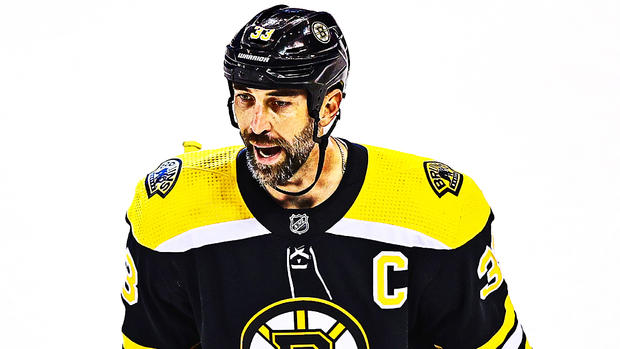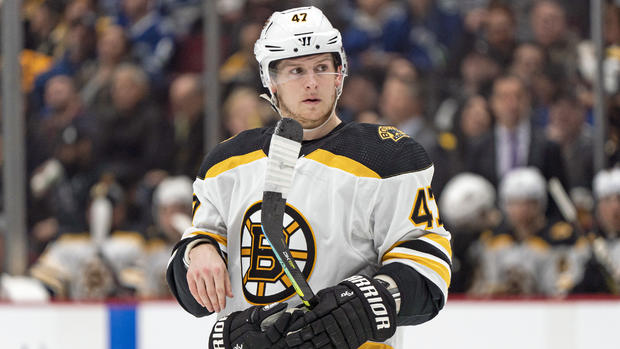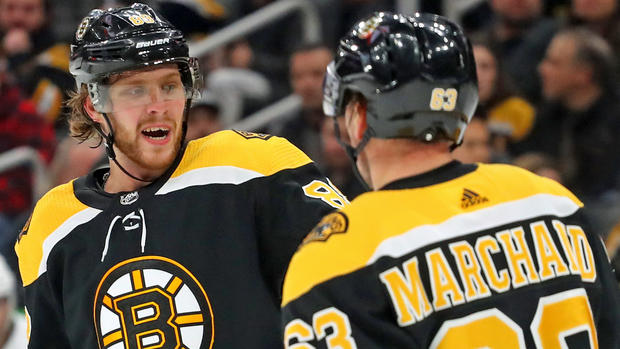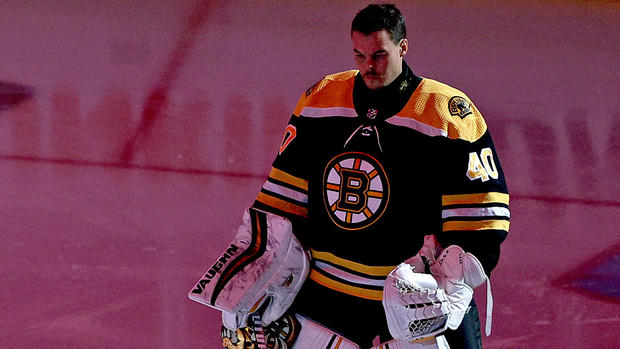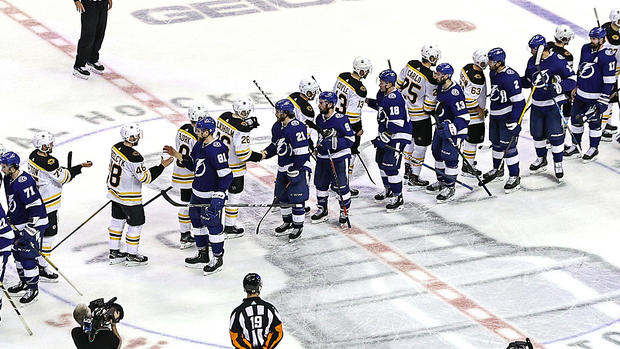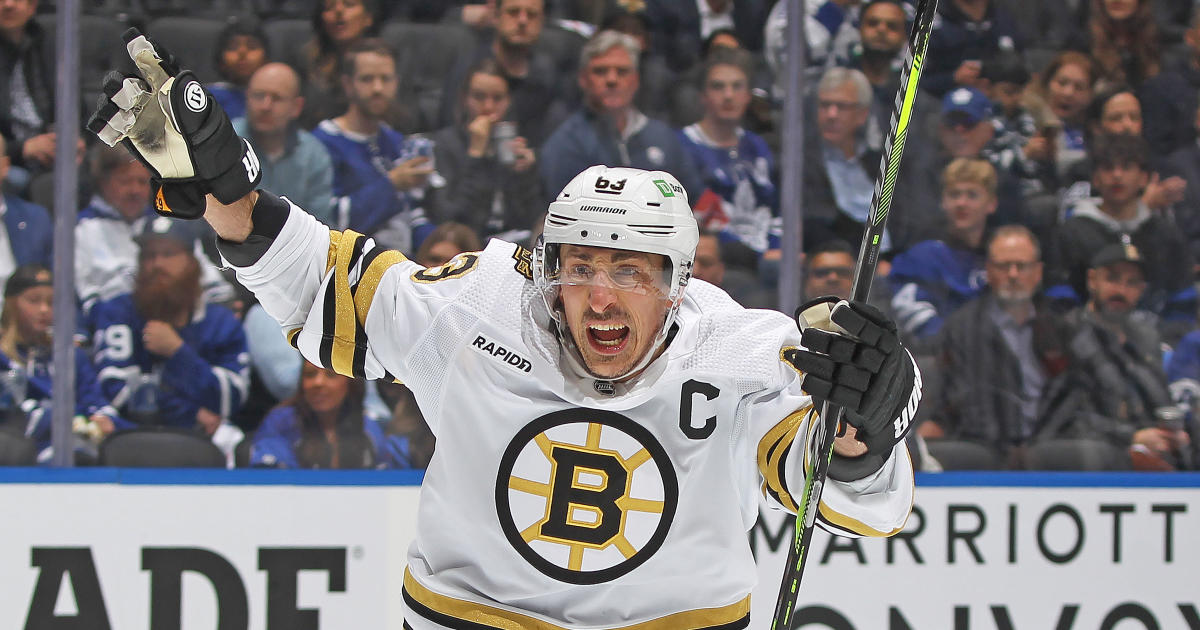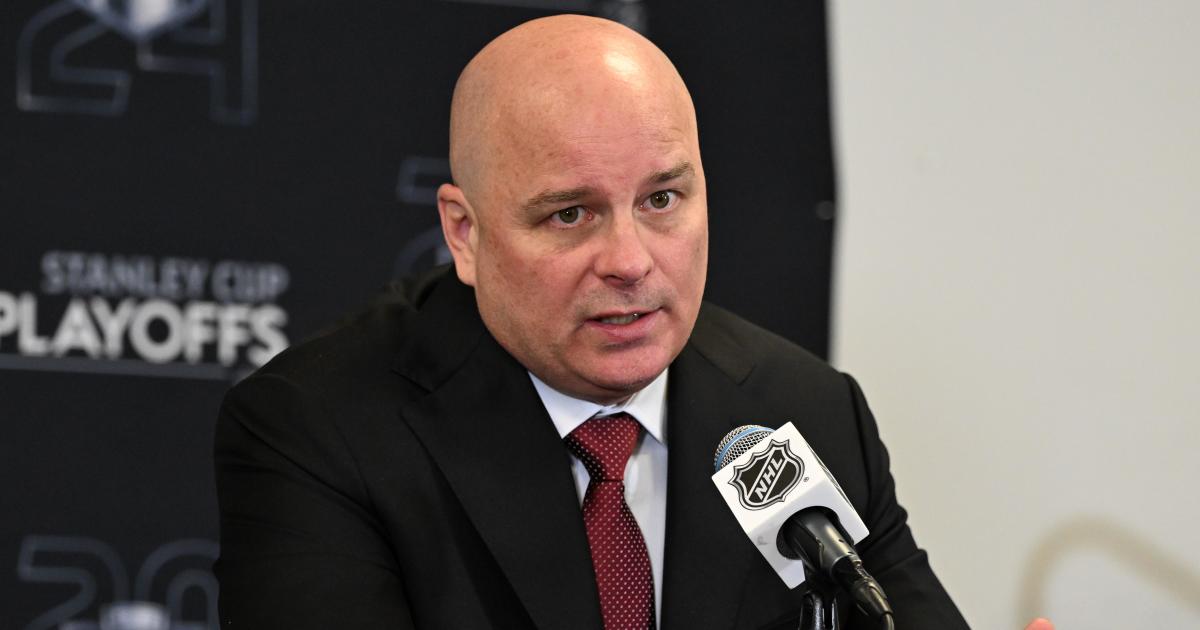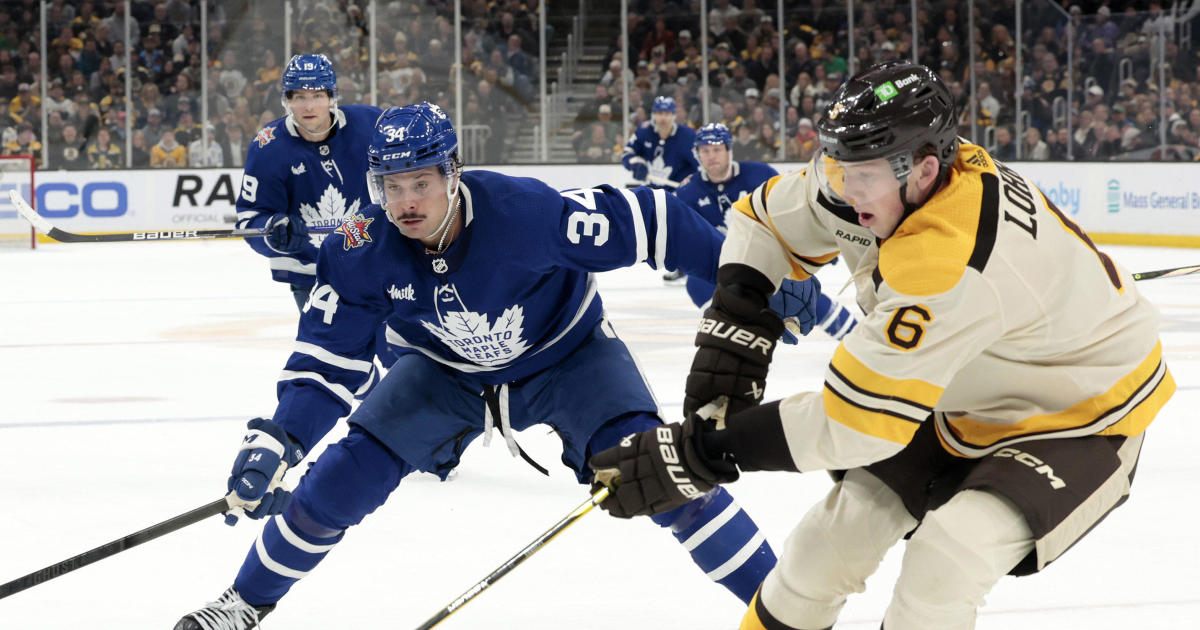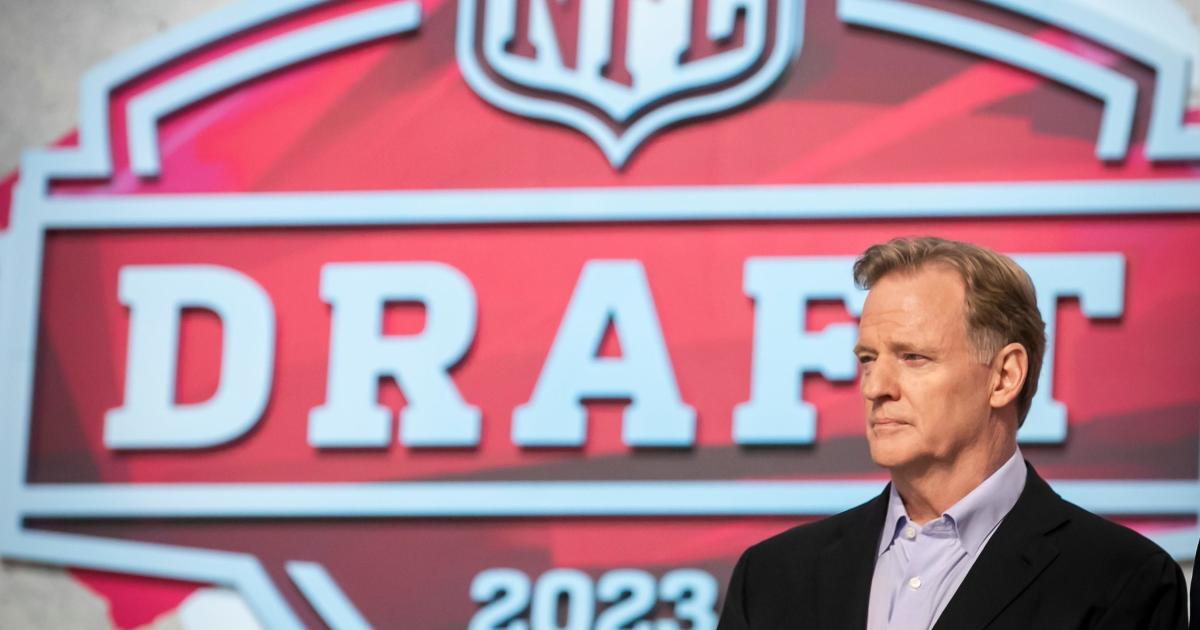Bruins Could Compete For Cup Or Miss Playoffs Entirely In Unique, Challenging Season
By Michael Hurley, CBS Boston
BOSTON (CBS) -- For the second time in a decade, an NHL season will begin in January. And just like that lockout-shortened season in 2013, this year's bubble-delayed, COVID-shortened season presents a unique situation for all 31 teams.
The last time the Bruins partook in a shortened season, the Bruins came out flying, going 14-2-2 out of the gate. They improved to 19-4-3 by mid-March, and though they would cool off later in the regular season, they'd end up making it all the way to Game 6 of the Stanley Cup Final.
Getting to that Final obviously remains the goal in Boston, but getting there won't be easy. Outside of the steep challenges presented from the temporary realignment, the Bruins have some questions of their own that they'll need to answer in the months ahead.
REPLACING Z
This is the big one, and it has less to do with the off-ice leadership (Patrice Bergeron is well-prepared to pick up that slack) and more to do with the 21 hard minutes that Bruce Cassidy will need to replace on the back end.
While Zdeno Chara was clearly a defense-only player for the past two years, he still drew the toughest assignments, still took more defensive zone draws than anyone else, and still was trusted to close out the final minutes of games. His size and experience cannot be replicated.
And when it comes to replacing that 21 minutes of ice time, the duties figure to be spread out among Jakub Zboril, Urho Vaakanainen, and Jeremy Lauzon. It also, of course, means much more responsibility for Charlie McAvoy, who's been the No. 1 defenseman for two years but no longer has his reliable partner to work with.
The calculated move away from Chara probably won't be disastrous for the Bruins, but Boston was the NHL's best defensive team last year, allowing 2.39 goals per game. Considering the Bruins did rank eighth in shots allowed per game, a large chunk of that success in keeping pucks out of the net had to do with elite goaltending. (Tuukka Rask and Jaroslav Halak won the Jennings Trophy.)
Yet with Chara now leaving an unmistakable hole on the D corps, expect a few more high-danger opportunities from opponents and, thus, a slight dip in the team's stout defensive work.
THE KRUG EFFECT
The book on Torey Krug is quite simple. Yes, at 5-foot-9, he can get outmuscled and worked over in his own end of the ice. But it's just as clear that Krug is a special offensive weapon.
With Krug now gone to St. Louis (for seven years and $45.5 million), it's been understood that the onus will fall on Mat Grzelcyk to be the new Krug. That's just not possible.
Grzelcyk is a dynamic skater with plenty of offensive upside, but few defensemen have the offensive abilities -- as a passer and a goal scorer, and just with pure vision -- of Krug.
Since 2015, only five defensemen -- Brent Burns, Erik Karlsson, Victor Hedman, John Carlson and Roman Josi -- have more points than Krug, who scored 41 goals with 215 assists. Krug's done a tremendous amount of damage on the power play, and that's where replacing him ought to be tricky.
Last year, the Bruins had the second-best power play in the league, scoring on 25.2 percent of their man advantages. Krug was on the ice for a tick under 237 minutes on power plays, leading the team by a mile. The second leader in power play ice time was Grzelcyk, who skated 105 minutes on the man advantage and recorded just seven power-play points (1-6-7).
In fact, the 27-year-old Grzelyck's single-season career high in points is 21, which he set last year in 68 games. He's made slow but steady progress in his three years in the NHL, but "replacing" Krug would require a mammoth jump forward.
Much like on defense, the Bruins still have plenty of power-play talent to go around, with Brad Marchand, David Pastrnak, David Krejci and Patrice Bergeron. So the power-play production drop won't be a complete catastrophe. But make no mistake: A spot at the top of the league in that category seems far-fetched.
TOP LINE HEALTH
David Pastrnak won't be ready for the start of the season, after undergoing offseason hip surgery. Brad Marchand is coming off sports hernia surgery. Patrice Bergeron has missed nine games last year, 17 games the year before, and 18 games the year prior to that, as his NHL odometer climbed past 1,000 games.
The importance of the health of that top trio cannot be overstated. They were the team's top three goal scorers last year, with Pastrnak scoring 48 goals, Bergeron scoring 31, and Marchand scoring 28. Marchand led the team with 59 assists, with Pastrnak ranked second with 47. Bergeron ranked sixth with 25 helpers. Even recognizing the limits of the plus-minus statistic, it's nevertheless worth noting that Marchand (plus-25), Bergeron (plus-23) and Pastrnak (plus-21) led all Bruins. They also ranked 1-2-3 in Corsi For percentage among forwards.
Of course, any team has to hope for good health for its top line. But with two-thirds of the Bruins' top unit coming off surgery, and with that top line accounting for a shade under 40 percent of the team's total production a year ago, the import is even greater for this year's Bruins.
MYSTERY, LAKE TAHOE
In case you missed it (it's easy to miss things these days), the Bruins will be participating in an outdoor game like no other this season. They'll take on the Flyers on a golf course at Lake Tahoe in February, with the league trying to replicate the magic of the 1999 film, "Mystery, Alaska." That apparently will include locker rooms built to look like wooden huts. Hopefully the teams skate down a frozen stream and barrel through an igloo.
While outdoor games have certainly lost their novelty after the NHL held roughly 7,000 of them in the past decade, the unique visuals for this event should at least make for some entertaining television on a Sunday afternoon.
TUUKKA
You can't talk Boston Bruins hockey without talking about Tuukka Rask. That is a law.
While it seems as though the team -- from management to the coaching staff to players in the locker room -- has not taken issue with Rask departing the bubble for a family emergency, the netminder nevertheless has plenty to prove in the upcoming season.
The 33-year-old (he'll turn 34 in March) is in a contract year. The last time he was in a contract year, he went ahead and performed as the best goalie in the NHL. Rask entered that lockout-shortened 2013 in the final year of his deal, and he posted a .929 save percentage and a 2.00 GAA in the regular season. That was merely the prelude for his postseason run, during which he posted eye-popping numbers. Rask had a .940 save percentage and a 1.88 GAA with three shutouts in 22 playoff games that year. Though the Bruins fell short against the dynastic Blackhawks, Rask's postseason performance stood alongside Thomas' as the best in Bruins history.
As a result, Bruins management had to pay up, signing Rask to an eight-year, $56 million contract. Rask has lived up to the deal at times and hasn't at others, but now that it's money-making time once again, it will be interesting to see how Rask performs at this different stage in his career.
An interesting note on Rask: He's received Vezina Trophy votes five times in his career. Each time, in the year after receiving votes, his numbers have gotten worse. Take a look.
2009-10: .931 save percentage, 1.97 GAA, 1 Vezina vote
2010: 11: .918 save percentage, 2.67 GAA2012-13: .929 save percentage, 2.00 GAA, 6 Vezina votes
2013-14: .930, 2.04 GAA, won Vezina
2014-15: .922 save percentage, 2.30 GAA2017-18: .917 save percentage, 2.36 GAA (3 Vezina votes)
2018-19: .912 save percentage, 2.48 GAA2019-20: .929 save percentage, 2.12 GAA, (29 Vezina votes, runner-up)
Only in 2013 did Rask repeat his Vezina-caliber play. Considering Rask's played his best when his workload has been managed, he may be able to replicate a repeat of last year's near-Vezina-worthy play. The Bruins will certainly need him to come close.
PLAYOFF FORMAT
It's interesting to look at the Bruins right now. On the one hand, they're the reigning Presidents' Trophy winners, having buzzsawed their way through the regular season prior to the coronavirus shutdown.
At the same time, they underwhelmed in the bubble, losing in five games to the eventual Cup champs in the second round. Then they lost important D-men in Chara and Krug, and their free-agent additions, such as they are, weren't particularly inspiring. (Greg McKegg has already been waived, with no teams claiming him.)
If the upcoming season were a normal one, then there'd be no doubt about using permanent ink to etch the Bruins into the playoffs this year. But this season is anything but normal, with temporary realignment forcing the Bruins to play the same seven opponents eight times apiece.
Some of those opponents -- Buffalo and New Jersey, for example -- shouldn't be much of a concern. But for the Bruins to even make the playoffs, they'll need to be demonstrably better than half of their division. With teams like the Capitals, Flyers, Penguins and Islanders involved, that's not necessarily a sure thing.
After that, the playoff format involves more divisional play, meaning if the Bruins were, say, the fourth seed in the East, then they'd need to beat the top team in the East to make it out of the first round.
It's a tough path, no doubt. Step one begins on Thursday night.
